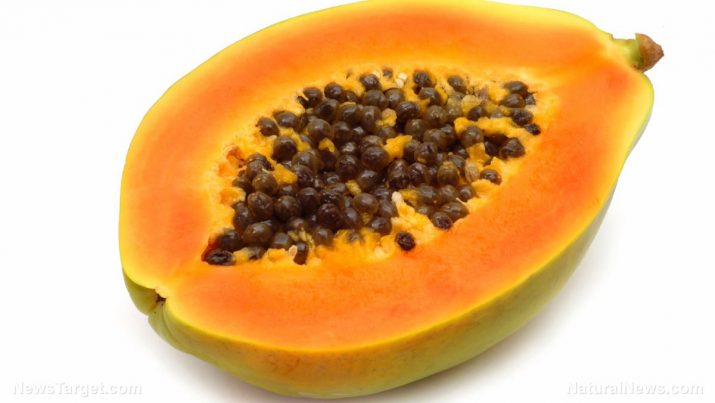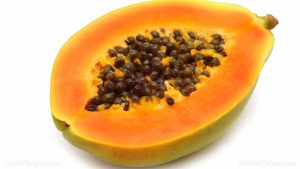
Cryptoxanthin sources, health benefits and uses
Saturday, September 23, 2017 by Michelle Simmons
http://www.naturalpedia.com/cryptoxanthin-sources-health-benefits-and-uses.html

Cryptoxanthin or beta-crytoxanthin belongs to the class of carotenoids, more specifically the xanthophylls. It is converted to vitamin A, also known as retinol, and is therefore considered as a pro-vitaminA.
It can be found in many fruits and vegetables such as papaya, mango, peaches, oranges, tangerines, bell peppers, corn, and watermelon. It can also be found in some yellow-colored animal products such as egg yolk and butter.
Other terms for this chemical are crytoxanthol and hydroxy-beta-carotene.
Medicinal uses for cryptoxanthin
Cryptoxanthin has antioxidant effects. In a study, it was found that cryptoxanthin protected transformed human cells. It also had a striking effect on DNA repair.
It is also found to have anti-cancer properties. In one study, cryptoxanthin increased the activities of detoxifying enzymes in liver, colon, and tongue of rats. Cryptoxanthin can also be used for anti-inflammation, reduction of insulin, and improving metabolism.
Body systems supported by cryptoxanthin
Cryptoxanthin has a lot of health benefits. It may benefit people at risk of certain cancers. Researchers found that a high dose of cryptoxanthin reduced colon cancer incidence in a study of F344 rats. It could also potentially act as a chemopreventive agent against lung cancer, according to another study.
It also improves brain function. In a study, mice that were dosed with cryptoxanthin had higher learning ability.
It may also benefit people who are at risk of diabetes. Researchers from Japan found that oral administration of cryptoxanthin prevented bone loss in streptozotocin-diabetic and ovariectomized rats. It increased their calcium content, alkalin phosphate activity, and DNA content in the femoral-diaphyseal and -metaphyseal tissues.
Cryptoxanthin was found to be good for the lungs. In studies, high intake of cryptoxanthin has been associated with a decreased risk of lung cancer, particularly among smokers.
It can help fight obesity. Oral administration of cryptoxanthin also repressed body weight, abdominal adipose tissue weight, and serum lipid concentrations on Tsumura Suzuki obese diabetic mice.
Cryptoxanthin may also reduce the risk of periodontal diseases. In a mouse model of periodontitis, cryptoxanthin suppressed bone resorption in the mandibular alveolar bone in vitro and restored alveolar bone loss.
Where to learn more
- 10 Plants Based Foods For Healing Respiratory Infection
- Cantaloupe Prevents Cancer, Improves Vision, Deeply Hydrates & Alkalizes the Body
- Forget Carving: Enjoy the Top 5 Health Benefits of Pumpkins
- 7 Surprising Health Benefits Of Sweet Potato
- Dandelion root far more effective in fighting cancer cells than chemotherapy
Summary
Cryptoxanthin or beta-cryptoxanthin can help prevent cancer, diabetes, obesity, and inflammation. It also supports the respiratory, immune, and nervous systems.
Sources include:
Tagged Under: Tags: cryptoxanthin






